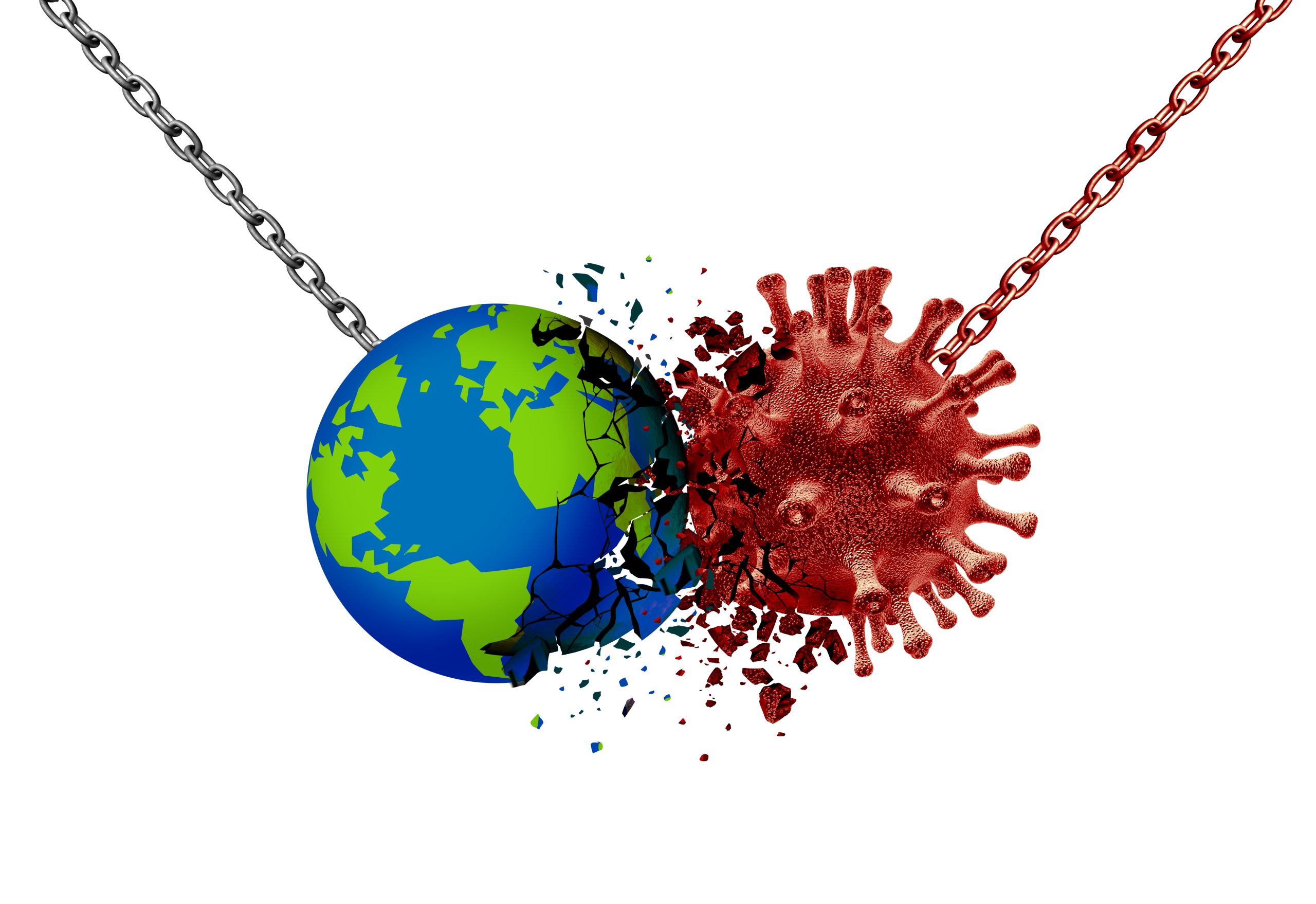“The American intellectual property ecosystem is part of the solution to vaccine equity. It must not be made a scapegoat.”
 Experts agree: The COVID-19 vaccines are one of humanity’s greatest achievements. The previous record for vaccine delivery was almost five years; today’s innovators delivered the COVID-19 vaccines in less than one. The achievement is a testament to the dedication of those innovators, as well as the strength of the policy framework that supports their work.
Experts agree: The COVID-19 vaccines are one of humanity’s greatest achievements. The previous record for vaccine delivery was almost five years; today’s innovators delivered the COVID-19 vaccines in less than one. The achievement is a testament to the dedication of those innovators, as well as the strength of the policy framework that supports their work.
Unfortunately, some people want to destroy that framework. Some nations are promoting a dangerous proposal, supported by the administration, to waive intellectual property (IP) protections – such as patents and trade secrets – for COVID-19 vaccines. At the end of November, at a World Trade Organization (WTO) ministerial meeting, they’ll present this proposal as the best way to defeat the pandemic.
But what they won’t mention is that their approach will actually threaten ongoing vaccine production, hurt our successful health care innovators, patient safety, economic competitiveness, American leadership, and the discovery pipeline in the process.
An IP Waiver Would Delay, Not Hasten Vaccine Production
Ramping up the production of billions of vaccines has already caused a global scramble for the raw materials and vaccine ingredients needed for authorized manufacturers to produce the vaccine. Vaccine makers have already produced more than 5 billion shots, are on track to deliver over 12 billion doses by the end of 2021, and expect to deliver more than 24 billion shots by June 2022. IP provides all manufacturers with the confidence to work together, so any additional blows to the supply chain – including waiving IP protections – would also be a significant blow to these efforts.
An IP Waiver Would Threaten Patient Safety
Bad actors, like counterfeiters and scam artists, may use an IP waiver as the basis for their next venture. As it is, WHO estimates that one in 10 medical products in low- and middle-income countries is falsified or substandard. They’ll fill syringes with substandard ingredients, convince desperate buyers they’re selling vaccines concocted via instructions from real manufacturers’ patents, and hurt health outcomes in a measurable way. Even some legitimate pharmaceutical manufacturers probably will be challenged to make vaccines using only instructions from patents safely and effectively. That’s because patents don’t include the technical know-how and anecdotal expertise critical to the manufacturing process.
An IP Waiver Would Hurt Health Care Innovators
An IP waiver would crash the system that underpins the massive private sector investment in research and development and cross-company collaboration responsible for technological progress. Not to mention, the red herring IP waiver issue distracts from the very real problems healthcare innovators need domestic and global leaders to fix: supply chain bottlenecks, allocation and distribution challenges, and trade barriers.
An IP Waiver Would Threaten Economic Competitiveness
According to the Pharmaceutical Research and Manufacturers of America (PhRMA), the biopharmaceutical industry supports more than 4 million jobs spanning all 50 states and adds more than USD 1 trillion to the U.S. economy. Their businesses rely on a foundation of strong IP protections; effective IP protections promise them that their intangible products – medicine recipes and manufacturing processes – have recognizable value in the marketplace. If an IP waiver destroys that foundation, it destroys businesses’ viability, and thus, destroys job creation, job retention, and financial growth.
An IP Waiver Would Threaten American Leadership
Today, 57% of all new medicines developed globally originate in the United States. And two of the three leading COVID-19 vaccine candidates were developed in American laboratories. Research proves this isn’t coincidence, it’s correlation. The U.S. Chamber’s International IP Index shows that the countries with the most robust IP infrastructure – like the United States – foster the most biopharmaceutical innovation. Inversely, the Index shows that the countries with the weakest IP infrastructure attract the least investment in biopharmaceutical innovation and experience the most limited access to new innovative biopharmaceutical products. To complete the equation, any action by the American government to weaken our IP infrastructure – including continued support of an IP waiver – will certainly sacrifice our world-class prowess in the life sciences arena.
An IP Waiver Would Threaten Discovery of New Treatments and Cures
The risk inherent in innovation is incalculable: It takes dozens of years and billions of dollars to bring a new medicine – or a new vaccine – to market. And most of the time, it doesn’t work out. For every 25,000 therapeutic compounds that start in the laboratory, 25 make it to clinical trials, five make it to market, and only one recoups the cost invested. Still, companies embark on new innovative pursuits every day, because IP protections signal that the effort is worth it. These protections are critical to the development of new treatments and cures. Thanks to a strong IP system, scientists are already applying mRNA technology – made famous for its use in COVID-19 vaccines – to solutions for other diseases like HIV/AIDS and Ebola.
These Consequences Make the Conclusion Clear: An IP Waiver Will Do More Harm Than Good
The American intellectual property ecosystem is part of the solution to vaccine equity. It must not be made a scapegoat. To improve global vaccine access, American leaders should be focused on supporting our innovators, remedying supply chain challenges, and leveraging proven, impactful access models, like COVAX. They should not be giving false credibility to political, ideologically motivated straw men, like the IP waiver. The biopharmaceutical community has brought us this far through the pandemic. If we punish them now – if we bite the hand that feeds us – we could be left starving for innovation the next time around.
Image Source: Deposit Photos
Image ID:354622542
Copyright:lightsource

![[IPWatchdog Logo]](https://ipwatchdog.com/wp-content/themes/IPWatchdog%20-%202023/assets/images/temp/logo-small@2x.png)

![[Advertisement]](https://ipwatchdog.com/wp-content/uploads/2024/04/Artificial-Intelligence-2024-REPLAY-sidebar-700x500-corrected.jpg)
![[Advertisement]](https://ipwatchdog.com/wp-content/uploads/2024/04/UnitedLex-May-2-2024-sidebar-700x500-1.jpg)
![[Advertisement]](https://ipwatchdog.com/wp-content/uploads/2024/04/Patent-Litigation-Masters-2024-sidebar-700x500-1.jpg)

![[Advertisement]](https://ipwatchdog.com/wp-content/uploads/2021/12/WEBINAR-336-x-280-px.png)
![[Advertisement]](https://ipwatchdog.com/wp-content/uploads/2021/12/2021-Patent-Practice-on-Demand-recorded-Feb-2021-336-x-280.jpg)
![[Advertisement]](https://ipwatchdog.com/wp-content/uploads/2021/12/Ad-4-The-Invent-Patent-System™.png)






Join the Discussion
2 comments so far.
Greg DeLassus
November 23, 2021 06:21 pmWhat’s at Stake if WTO Removes Protections[?]
Nothing is “at stake,” because the WTO has no power to remove IP protections. The WTO does not create IP laws, and therefore the WTO correspondingly has no power to undo such laws.
All that the WTO can do is to grant member nations permission to relax their own national IP laws. Even if the WTO grants such permission, neither the US nor any EU nation is at all likely to act on that permission by relaxing their own national IP laws.
The only IP laws that are likely to be relaxed under a WTO waiver are in smaller market nations like IN or ZA—where none of the COVID vaccine makers have any IP in the first place. This is all much ado about nothing.